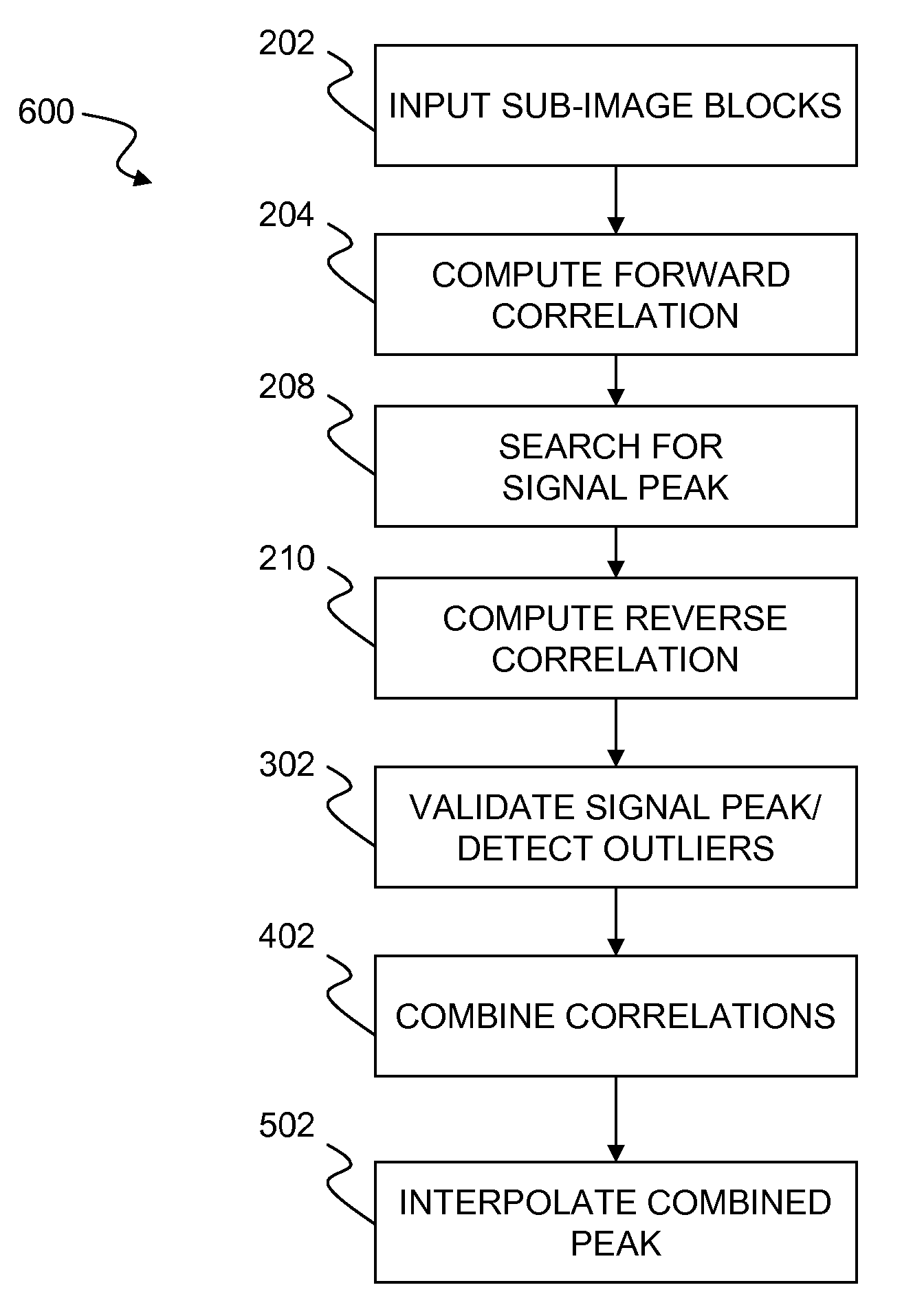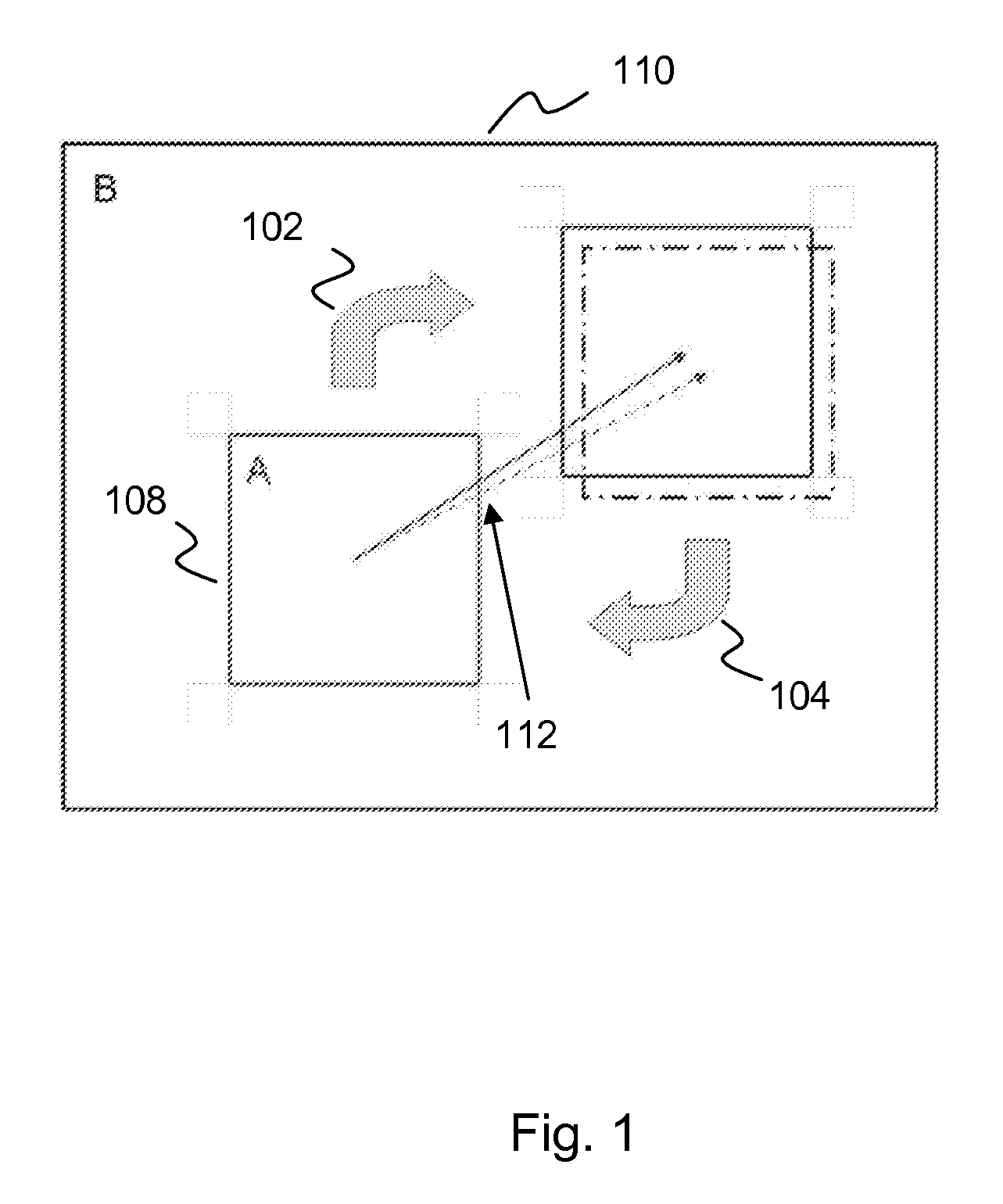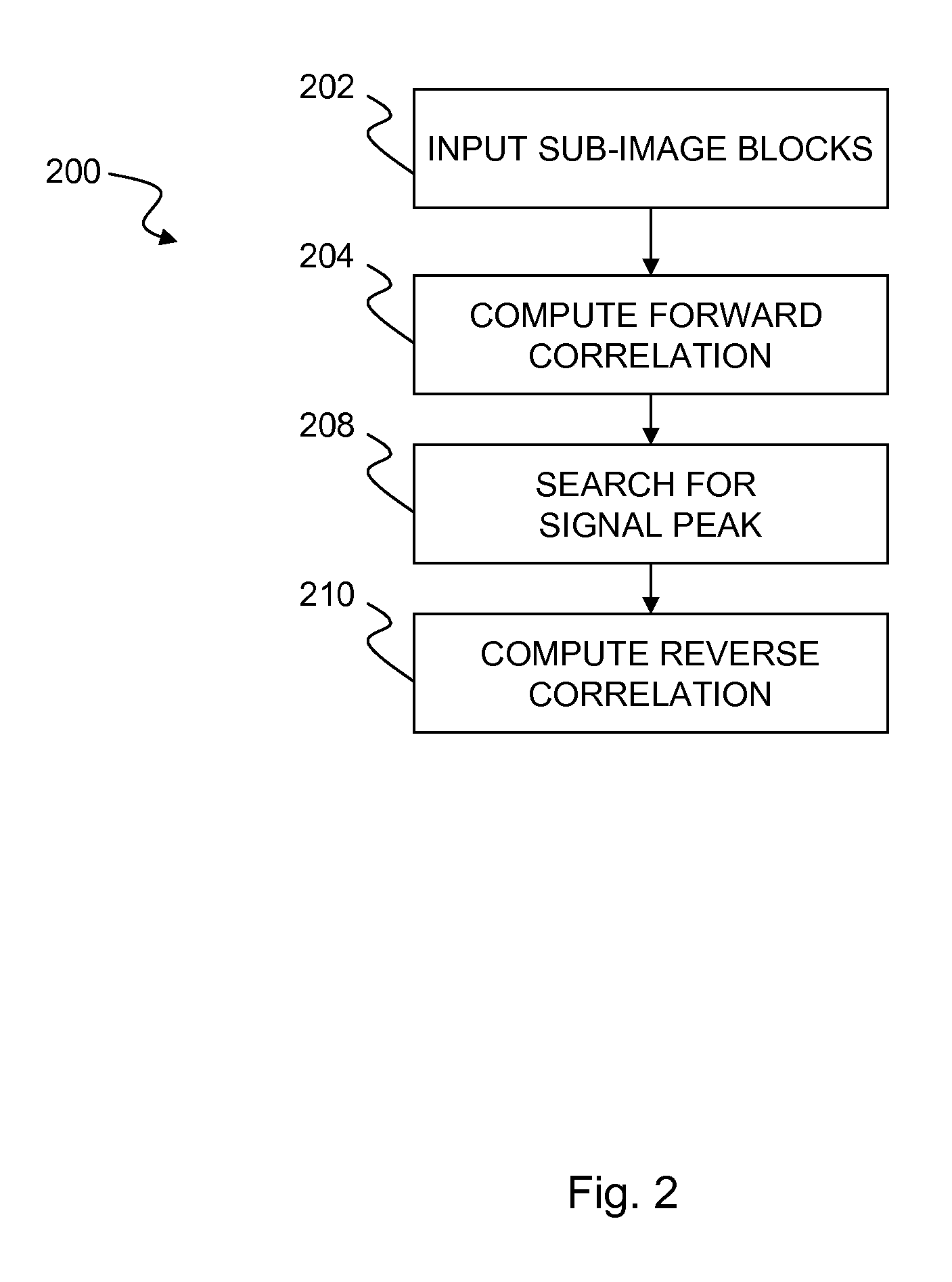Combined forward and reverse correlation
a forward and reverse correlation and correlation technology, applied in the field ofsignal processing, can solve the problems of significant false correlation contribution to the small neighborhood of the signal peak, limited constraints, and noise in the root mean square (rms) of the recovered disparity information, so as to improve interpolation, eliminate or reduce rms noise, and improve the effect of interpolation
- Summary
- Abstract
- Description
- Claims
- Application Information
AI Technical Summary
Benefits of technology
Problems solved by technology
Method used
Image
Examples
Embodiment Construction
[0016]This disclosure relate to analysis of image data, which as used herein should be understood to include a wide range of types of image data, including image data from all types of cameras and vision systems, machine visions systems, stereoscopes, telescopes, endoscopes, microscopes and the like. Image data may include data from the visible spectrum, as well as infrared, ultraviolet, x-ray and other image data, including data from any part of the electromagnetic spectrum. In embodiments image data relates to image frames and may include data related to the motion or disparity of images between two frames, such as frames taken at different times, frames taken from different points of view, or frame data taken from different parts of a vision system (such as different sensors viewing the same object). Image data may be recorded in various forms, such as pixel intensities, variances in pixel intensities, spectral content, and the like. It should also be appreciated that, while the ...
PUM
 Login to View More
Login to View More Abstract
Description
Claims
Application Information
 Login to View More
Login to View More - R&D
- Intellectual Property
- Life Sciences
- Materials
- Tech Scout
- Unparalleled Data Quality
- Higher Quality Content
- 60% Fewer Hallucinations
Browse by: Latest US Patents, China's latest patents, Technical Efficacy Thesaurus, Application Domain, Technology Topic, Popular Technical Reports.
© 2025 PatSnap. All rights reserved.Legal|Privacy policy|Modern Slavery Act Transparency Statement|Sitemap|About US| Contact US: help@patsnap.com



